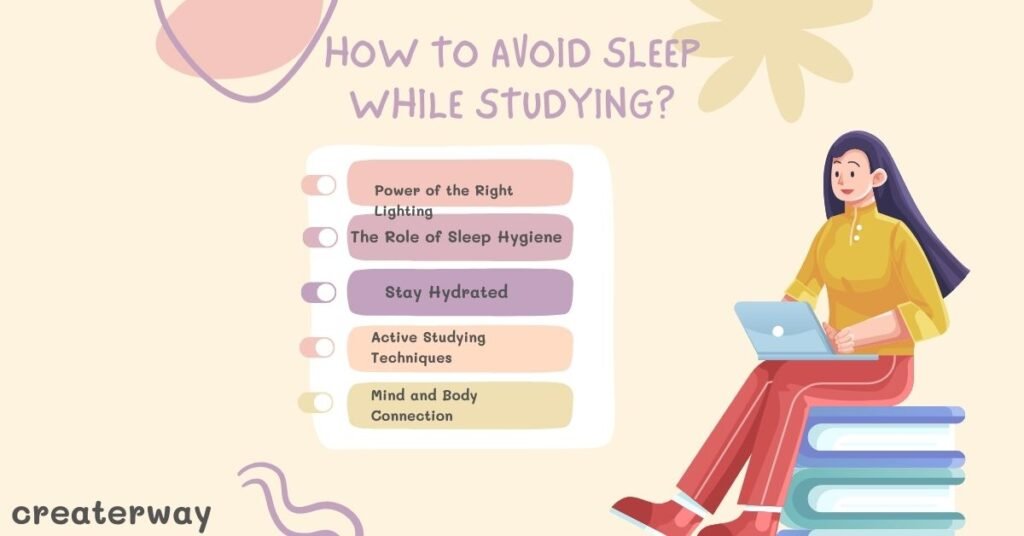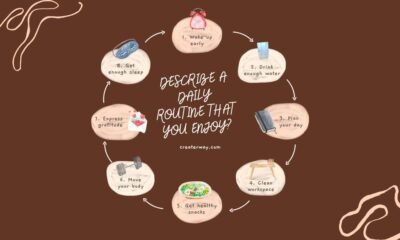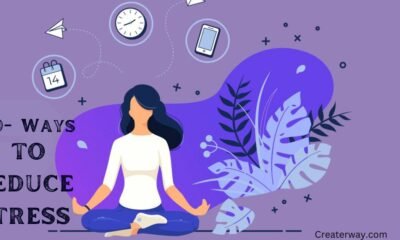EDUCATION
HOW TO AVOID SLEEP WHILE STUDYING?

Pursuing academic excellence demands long hours of study and unwavering focus. However, staying awake and alert during these study sessions can be a considerable challenge. Fatigue and drowsiness can derail productivity and hinder the effectiveness of your study efforts. This article explores strategies how to avoid sleep while studying? And providing practical tips and techniques to help you maintain concentration and maximize your study time.
Understanding the Importance of Alertness

HOW TO AVOID SLEEP WHILE STUDYING?
Before delving into techniques to stay awake while studying, you must recognize the significance of maintaining alertness and focus during your study sessions. When you are alert, your brain processes information more efficiently, retention improves, and your productivity skyrockets.
The Role of Sleep Hygiene
- Prioritize Quality Sleep: Adequate sleep is the foundation for staying awake while studying. Ensure that you consistently get a good night’s sleep. Aim for 7-9 hours, as recommended for most adults.
- Set a Sleep Schedule: Establish a regular sleep schedule, going to bed and awake at the same time every day, even on weekends. Consistency reinforces your body’s internal clock.
- Create a Relaxing Bedtime Routine: capture in calming pursuit before bedtime, such as reading a book, taking a warm bath, or going through relaxation exercises like deep breathing.
Stay Hydrated
- Drink Water: Dehydration can contribute to drowsiness. Stay hydrated by consuming enough water throughout your study session. A glass of water can serve as a natural stimulant.
- Limit Caffeine Intake: While caffeine can help boost alertness, excessive consumption can lead to jitteriness and a subsequent energy crash. Consume it in moderation.
Active Studying Techniques
- Change Your Study Environment: Moving to a different location or changing your study spot within the same environment can help you stay engaged and alert.
- Use Active Learning Methods: Active learning techniques, such as summarizing material aloud or teaching concepts to an imaginary class, keep your mind engaged.
- Take Short Breaks: Divide your study session into smaller, focused intervals and take short, active breaks. Physical activity during breaks can re-energize you.
Mind and Body Connection
- Practice Mindfulness: Incorporate mindfulness exercises into your routine, such as meditation or yoga. These practices can help improve mental alertness and reduce stress.
- Engage in Physical Activity: Regular exercise is linked to enhanced alertness and cognitive function. Incorporate physical pursuit into your daily routine to reap these benefits.
Dietary Considerations
- Balanced Nutrition: A well-balanced diet provides a consistent energy source throughout the day. Focus on whole grains, lean protein, fruits, and vegetables.
- Avoid Heavy Meals: Heavy meals can lead to drowsiness. During study sessions, opt for smaller, light snacks such as nuts, yogurt, or fruit.
- Snack Strategically: Snacks containing complex carbohydrates, like whole-grain crackers, can help comfort your energy levels and alertness.
Power of the Right Lighting
- Natural Light: Whenever possible, study in well-lit, naturally illuminated spaces. Exposure to natural light helps regulate your body’s internal clock.
- Blue Light Blocking Glasses: If you’re studying on a digital device, consider using blue light-blocking glasses to reduce eye strain and help prevent sleep-inducing blue light exposure.
The Pomodoro Technique
The Pomodoro Technique is a timedirection method that involves working in short, focused intervals (usually 25 minutes) followed by a 5-minute break. After four cycles, take a longer break (15-30 minutes). This structured approach can help maintain alertness and manage your energy effectively.
Social Engagement

- Study Groups: Studying with peers can keep you engaged and alert. Group discussions and interactive learning enhance cognitive function.
- Accountability Partners: Find an accountability partner who shares your study goals and encourages each other to stay awake and on track.
Keep It Cool
Maintain a comfortable study environment with a slightly cooler temperature. Warmer surroundings can promote drowsiness.
Caution with Over-the-Counter Stimulants
While over-the-counter stimulants like energy drinks or supplements may seem tempting, their misuse can lead to adverse health effects. It’s essential to use them cautiously and sparingly.
Prioritize Self-Care
Lastly, prioritizing self-care is paramount. Listen to your body. If you’re persistently tired, taking a nap or getting adequate rest is often more effective than pushing through exhaustion.
READ MORE ABOUT WHERE TO DONATE BOOKS.



















